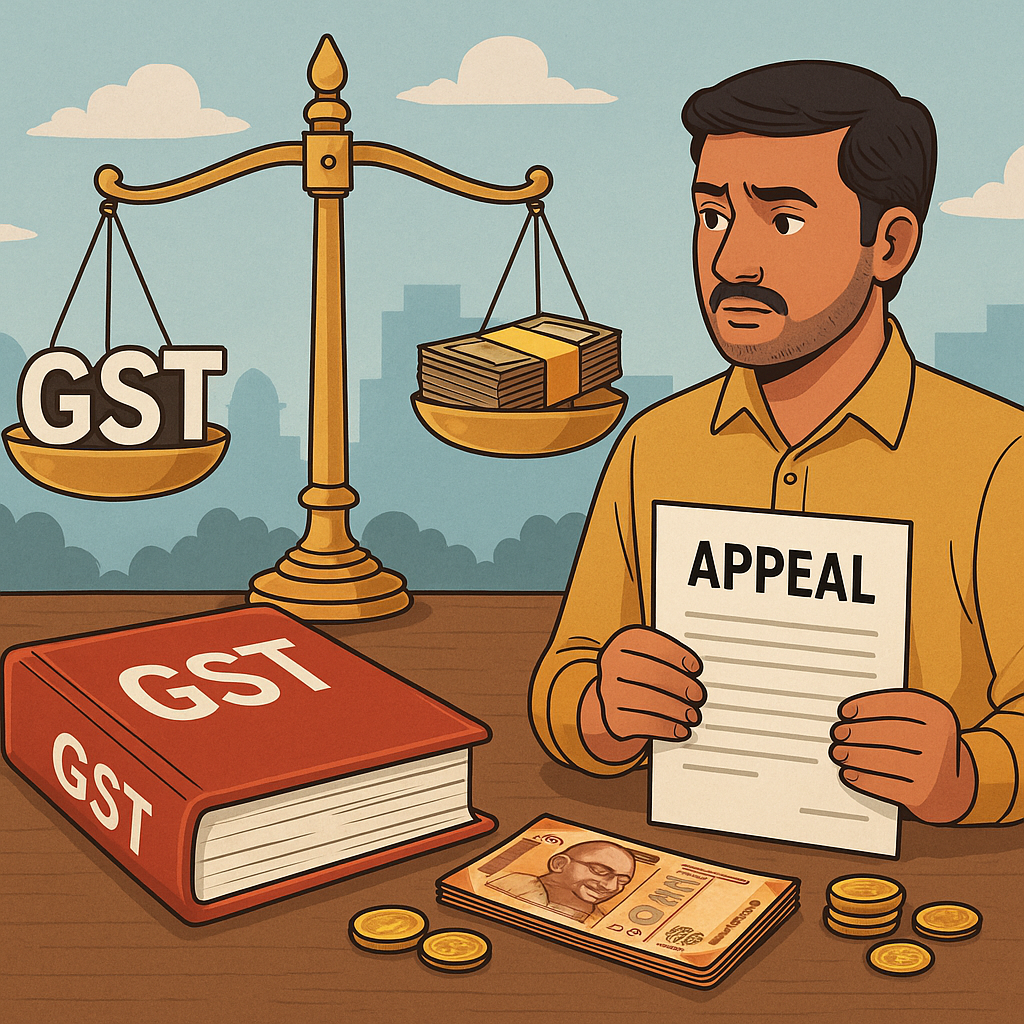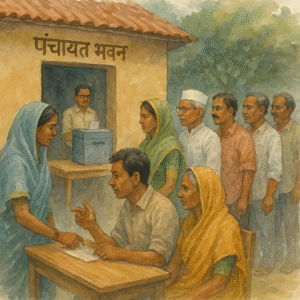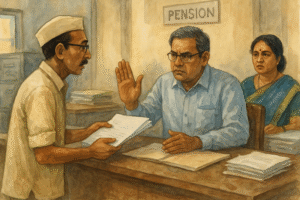The Patna High Court has clarified how taxpayers can still pursue a time-barred GST appeal by using a special window created by the Central Board of Indirect Taxes and Customs (CBIC). In a writ petition arising from the dismissal of a delayed first appeal under the Bihar GST (BGST) Act, the Court restored the appeal to the appellate authority, subject to the taxpayer complying with conditions laid down in CBIC’s Notification No. 53/2023-Central Tax dated 02.11.2023 and doing so by the last date fixed therein (31.01.2024).
In simple terms, the petitioner’s original GST appeal had been filed late and therefore rejected as beyond the statutory grace period permitted by Section 107 of the BGST Act. Section 107 allows three months to file an appeal, with a further one-month period for delayed filing if sufficient cause is shown. Once even that additional month is crossed, neither the appellate authority nor the High Court (in writ jurisdiction) can condone the delay. The Court reiterated this settled position.
However, the twist in this case came from a subsequent policy development: CBIC’s Notification No. 53/2023-Central Tax (S.O. 4767(E)) opened a special window to file or treat as properly filed certain GST appeals against orders passed on or before 31.03.2023 under Sections 73 and 74—provided specific conditions are satisfied and the filing happens by 31.01.2024. The High Court relied on this special procedure to grant the petitioner a pathway despite the earlier dismissal for limitation.
Under this Notification, an appellant must (i) file the appeal in FORM GST APL-01 by 31.01.2024 (or, if already pending as on the Notification date, fulfill the monetary conditions to be deemed properly filed), and (ii) first pay (a) the entire amount admitted as due and (b) 12.5% of the remaining disputed tax, subject to a cap of ₹25 crores, of which at least 20% of that 12.5% must be paid by debiting the Electronic Cash Ledger. The Notification also bars this route if the demand does not involve “tax”, and applies Chapter XIII of the CGST Rules mutatis mutandis.
Applying these rules, the Court set aside the appellate authority’s order rejecting the appeal (dated 14.07.2023), on the condition that the assessee meets all requirements of paragraph 3 of the Notification within the stipulated time (i.e., on or before 31.01.2024). If those conditions are satisfied in time, the first appeal will be heard on merits; if not, the dismissal order will automatically stand restored. The Court also noted that, ordinarily, 10% of the disputed tax would/ought to have been paid at the time of filing the first appeal; therefore, only the “deficient” balance (to reach the Notification’s 12.5% requirement and other prerequisites) needs to be made good.
Overall, the decision provides a clear and practical bridge between strict statutory limitation and the special policy-based relief crafted by CBIC, ensuring that appeals falling within the Notification’s scope can still be taken up on merits if the monetary and procedural conditions are met by the deadline.
Significance or Implication of the Judgment
For taxpayers (especially MSMEs and local traders), this ruling is important because it underscores that an otherwise time-barred GST appeal can be revived when the CBIC’s special procedure applies. Many assessees missed appeal timelines during the initial GST years for a variety of reasons—procedural unfamiliarity, digital filing challenges, or oversight. The Court has recognized the CBIC Notification as a valid framework to accommodate such cases, but only if the taxpayer complies precisely with its conditions and the deadline.
For government authorities, the decision balances finality with fairness. While Section 107’s limitation and outer condonable period still apply strictly, the Court respects the executive policy that offers a limited-time, conditional chance to correct past lapses. This promotes adjudication on merits without opening the floodgates for indefinite condonation. It also signals to appellate authorities that where a CBIC special window exists, appeals should not be rejected solely for delay if the Notification’s criteria are duly met before the cut-off date.
For practitioners, the case is a reminder: (1) check if the impugned order falls within the Notification’s timeline (order under Sections 73/74 passed on or before 31.03.2023), (2) ensure FORM GST APL-01 is filed or deemed filed as per the Notification, and (3) compute and deposit the precise sums—admitted dues in full plus 12.5% of disputed tax (with the stipulated part via Electronic Cash Ledger). Failure on any element may forfeit the benefit of the window.
Legal Issue(s) Decided and the Court’s Decision with reasoning
- Whether a delayed first appeal under BGST, rejected for having crossed even the one-month condonable extension under Section 107(4), can be revived.
✔ Decision: Yes, if the case falls within CBIC Notification No. 53/2023-Central Tax and the appellant strictly satisfies the Notification’s conditions by 31.01.2024; the earlier dismissal order can be set aside and the appeal restored for decision on merits. - What monetary and procedural preconditions apply to avail the special window.
✔ Decision: The appellant must pay (i) the entire admitted tax/interest/fine/fee/penalty, and (ii) 12.5% of the remaining disputed tax (subject to ₹25 crores), ensuring at least 20% of that 12.5% is paid from the Electronic Cash Ledger; FORM GST APL-01 must be filed by 31.01.2024 (or an already-pending appeal must meet these conditions to be deemed in accordance with the Notification). - Whether High Courts/Appellate Authorities can otherwise condone delay beyond the statutory outer limit in Section 107.
✔ Decision: No. When the statute prescribes a specific outer limit for condonation, courts and appellate authorities cannot extend it; the only path here was through the special procedure of the CBIC Notification. - Consequence of non-compliance within the Notification’s deadline.
✔ Decision: If the taxpayer does not satisfy the conditions before 31.01.2024, the appellate rejection order stands restored and no relief is available.
Case Title
Sabita Singh Vs. The Union of India
Case Number
Civil Writ Jurisdiction Case (CWJC) No. 16514 of 2023.
Coram and Names of Judges
Hon’ble The Chief Justice and Hon’ble Mr. Justice Rajiv Roy. (Oral Judgment dated 30-11-2023)
Names of Advocates and who they appeared for
- For the petitioner: Mr. Uday Prasad Singh, Advocate.
- For the respondents: Dr. K. N. Singh, Additional Solicitor General.
Link to Judgment
MTUjMTY1MTQjMjAyMyMxI04=-UyR–am1–I42wwDQ=
If you found this explanation helpful and wish to stay informed about how legal developments may affect your rights in Bihar, you may consider following Samvida Law Associates for more updates.








